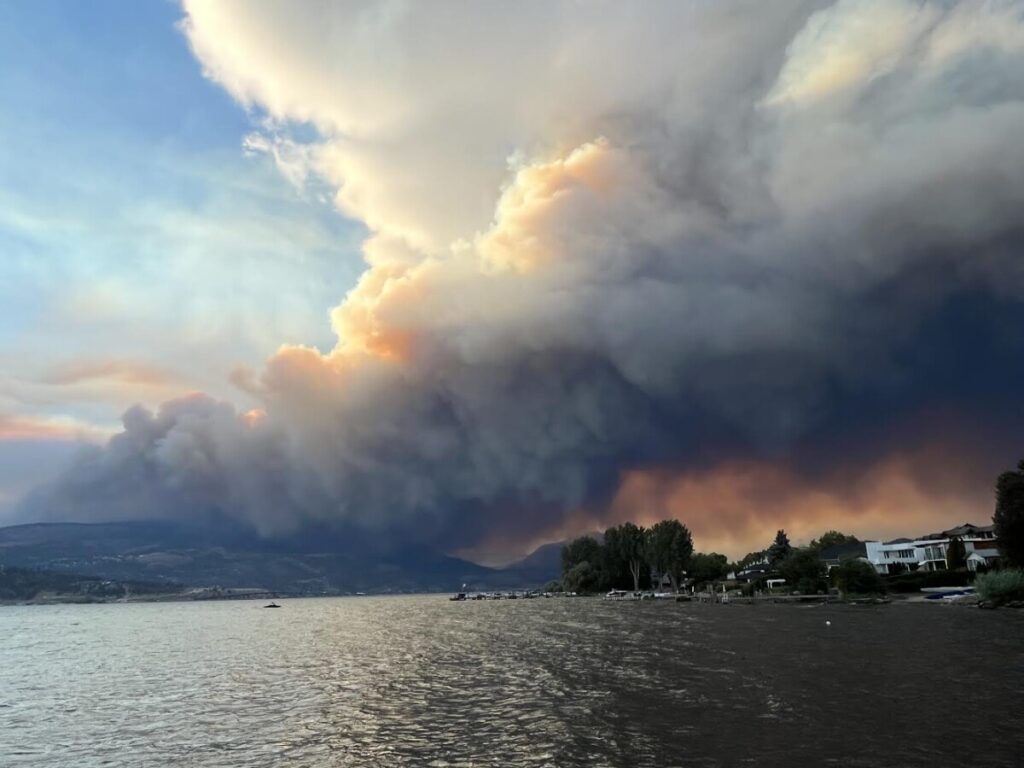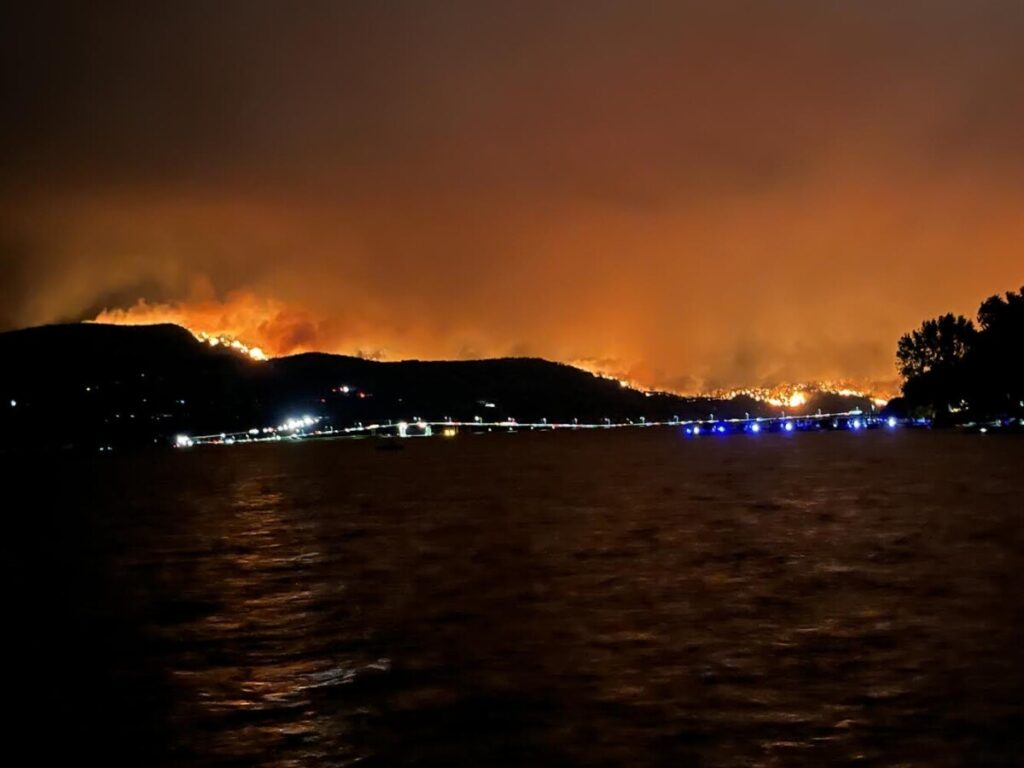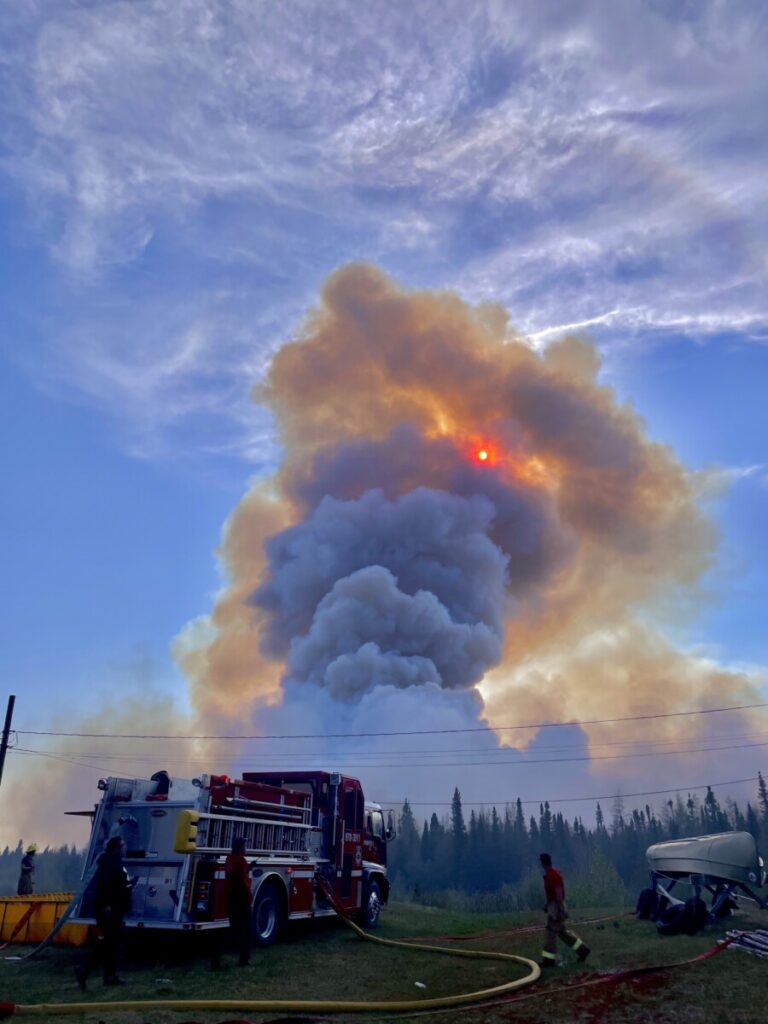Amidst the intensifying impact of climate change, Canadians endured nightmarish journeys, unforeseen expenses and heartwarming acts of kindness.
Renowned for its vibrant summer festivals, Montreal bore witness to a disturbing transformation this scorching season. Azure skies became the canvas for relentless infernos, shrouding the city in smog and smoke, a poignant reminder of fires sweeping not just across Canada, but the world.
Among those affected were Concordia University students, enduring a nightmarish ordeal that left a trail of devastation.
For Joshua Iserhoff, a human relations student, this summer became a harrowing nightmare. His family embarked on a frantic odyssey from one threatened community to another, pursued by the flames.
The journey from Montreal to their home in Nemiscau along the Billy Diamond Highway was fraught with tension. Despite some reassuring forecasts, the unpredictable nature of wildfires always loomed.
“Rabbits [were] running on the highway because they’re running as well,” Iserhoff recalls. “And that’s the safe place that they could find.”
Due to the fires, their endeavour involved additional hours on the road and in hotels, incurring unexpected expenses, a heavy burden, especially for a student. Their families rallied to provide support, easing the financial strain.
Their escape began on July 11 after attending a wedding in Ottawa, heading northward. At the Matagami Gate, a crucial checkpoint on the private Billy Diamond Highway, they received the all-clear from the toll attendant, oblivious to the impending danger.
Iserhoff had been driving his sister’s car when in mere seconds, the winds intensified, carrying a blinding wall of smoke and flames, plunging them into darkness, cars threatening to lift off the ground. Panic set in as he glanced at his own family in the other vehicle.
Unable to communicate through open windows due to his daughter’s asthma, Iserhoff’s wife used soaked towels as makeshift respirators for their children, a life-saving suggestion by Iserhoff’s mother. Fortunately, an elderly stranger saw them struggling and offered N95 masks, providing a glimmer of hope.
Survival instincts took over. “I have to drive,” Iserhoff told his wife after switching cars to join his family. “She covered [the kids] with a blanket, and opened the iPad. We were singing in the cars.”
Despite putting on a brave face for his children, it was a traumatic experience. “It does something to your humanity,” Iserhoff said.
Out west, creative writing student Jess Thodas confronted an advancing wildfire that jumped across the lake that separates East and West Kelowna. “We went out with my dogs to the lake”, Thodas recounts. “We started noticing the sky was turning red.”
Reliant on sporadic emergency alerts and Twitter updates, she relied mainly on messages from within the community to stay safe.
All flights were grounded, runways reserved for water bombers. More than a week of cancellations later, Thodas finally boarded a flight back to Montreal, leaving her concerned for her family.
Thodas embarked on a challenging 20-hour journey, which involved a night sleeping at the airport with her dog. Unable to relax until reaching her apartment, Thodas just collapsed on her bed once she’d made it.


In the midst of this crisis, Dr. Rebecca Tittler, a forest ecologist who teaches at the Loyola College for Diversity and Sustainability and in the Departments of Biology and of Geography, Planning and Environment and coordinates the Loyola College for Diversity and Sustainability and the Loyola Sustainability Research Centre at Concordia, provides insight into the situation.
She points out that while wildfires are a natural part of forest ecosystems, this year’s early and severe onset can likely be attributed to the hot and dry conditions caused by climate change. “We must remember that trees naturally burn, releasing what they’ve stored, unlike the greenhouse gases emitted by humans altering the climate,” she explained.
Dr. Tittler emphasizes the pressing need to address climate change and safeguard communities in isolated forested areas and enhance evacuation measures, underlining that firefighting efforts prioritize protecting human lives due to the vastness of Canadian forests.
Despite these stories of resilience in the face of nature’s fury, each new blaze serves as a stark reminder of our shared vulnerability and the urgent imperative to confront the growing impact of climate change.





